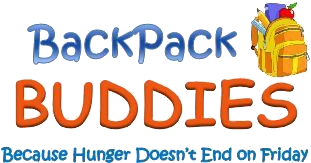1 in 5 Children Struggle with Hunger
When students leave school for the weekend, the last thing they should have to worry about is when they will get their next meal.

Our Backpack Program provides each participating child six balanced meals including whole-grain cereals, protein-rich entrées, canned fruits and vegetables, milk and snacks each weekend during the school year.
We currently serve students in 19 schools throughout our service area.
- Essex County – 70 children
- Lancaster County – 120 children
- Middlesex County – 120 children
- Northumberland County – 170 children
- Richmond County – 24 children
- Westmoreland County – 92 children
Our partners in each county identify the students in need; coordinate the consent process for the program; identify and help resolve challenges that impeded students from getting Backpacks; and help with surveys that provided information to continue improving the Backpack Program.
Of the students served:
- 80% reported eating more fruits & vegetables;
- 80% reported eating all or most of the food;
- 85% reported they worry less or no longer worry about having enough food for the weekend.
Together we can make a difference in the lives of children in our region by closing the nutritional gap and building a foundation for success for all children in the Northern Neck and Upper Middle Peninsula.
What Happens When a Child Faces Hunger?
Kids who don’t get enough to eat — especially during their first three years — begin life at a serious disadvantage. When they’re hungry, children are more likely to be hospitalized and they face higher risks of health conditions like anemia and asthma.
As they grow up, kids struggling to get enough to eat are more likely to have problems in school and other social situations.
Children who go hungry:
- Are twice as likely to repeat a grade in elementary school
- Are more likely to miss school and receive poorer grades
- Experience developmental impairments in areas like language and motor skills
- Suffer from stomachaches, headaches, depression, anxiety and a decreased ability to focus
- Struggle socially and behaviorally
- Are more likely to drop out of high school before graduation
